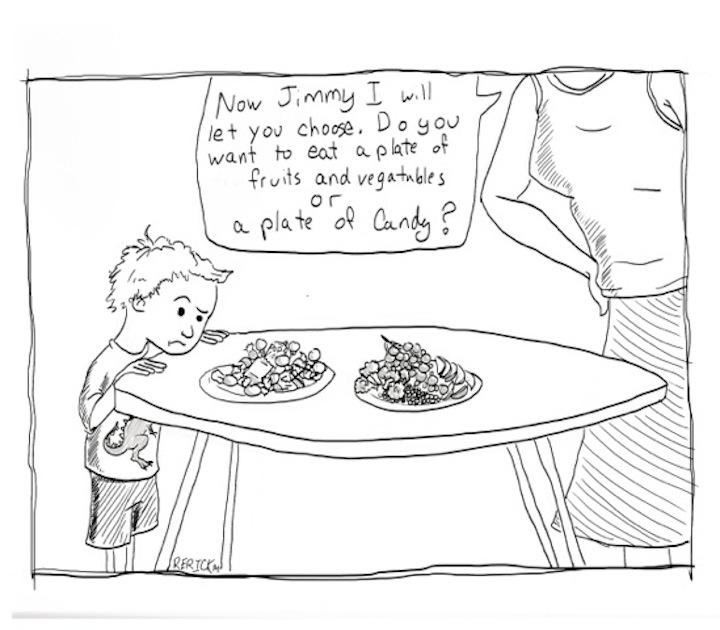Choosing own beliefs is necessary
Illustration by William Rerick/The Dakota Student.
Indoctrination is always a bad concept.
Indoctrination is defined as teaching someone to fully accept the beliefs of a group without considering any others.
Parents want their children to be like them, and religion often intensifies that feeling, especially since many religions prescribe horrific punishments in the afterlife for failing to believe in them. Understandably, this raises a protective instinct, which causes parents to do everything in their power to save their child from this perceived threat by trying to get them to convert as early as possible.
There are many parents that don’t give their child an opportunity to choose their beliefs. This is often the cause behind the horror stories Christianity has produced involving enraged parents disowning their children for the crime of having different religious beliefs.
It’s no secret there’s a greater number of youth leaving religion now more than ever. Some have credited this to the Internet and ease of access to information that easily disproves some of the more ludicrous religions like Mormonism.
However, some religious parents blame themselves for their children abandoning the religion and not pushing doctrine enough. These people seem to be blind in seeing that it was pushing these things as hard as they did that caused these kids to abandon the faith in the first place.
Many people that attend this college likely came from a Christian background. Some do keep their original beliefs 100 percent as taught to them by their parents. Others start to comprise them based on convenience. For example, the Catholic church might teach contraceptives are bad, but it’s just not safe to have sex without protection.
Some abandon the religion entirely once they start to honestly question what they believe.
You might be familiar with the stereotype of the sexually repressed youth that will be more sexually courageous than anyone because she’s been repressed her whole life and finally has a chance to do what she wants. While it is a stereotype, the underlying principle behind it applies to religion in general.
The harder you push something, the more likely someone won’t want to be a part of it.
These types of religious people, the ones that demand everyone be exactly like them, are the most insecure in their beliefs of anyone. If you honestly believed something to be true, you wouldn’t need to force that belief on anyone else.
The other problem with indoctrination is that it negates faith. The main defense behind beliefs that can’t be proven is usually faith. Faith is often treated as a virtue among religious groups. Yet, if a child doesn’t choose his or her belief, then there is no faith, and it’s simply compliance.
There’s also a lot of parents that insist they don’t indoctrinate their children, while their actions prove the opposite. I’m talking about families that hide in their own corner of society watching only Christian movies, listening to only Christian music, reading only Christian books, while sending their children to Christian schools.
They create an environment that’s exclusively Christian, thus causing any who disagree with religious claims to become outcasts, rejects and ostracized from any and all social groups.
Even though there is no demand to believe this religion, it’s still indoctrination because it doesn’t allow any opposing viewpoints to ever be heard.
For those of you who are religious and plan on having children, this is something to keep in mind. It’s fine to take your child to church and explain to them the religion that’s important to you. But it’s a terrible idea to try to convert a child early on. Young children will believe all kinds of things like Santa Claus, the Easter Bunny and the Tooth Fairy. If you try to convert your children to your religion while at the same time telling them about these other mythical figures, they might just add your religion to the pile of other myths they were told about as children.
Parents shouldn’t do everything in their power to silence any and all voices that might disagree with them, especially if those voices are coming from the children themselves.
Michael Rauser is a staff writer for The Dakota Student. He can be reached at [email protected].







